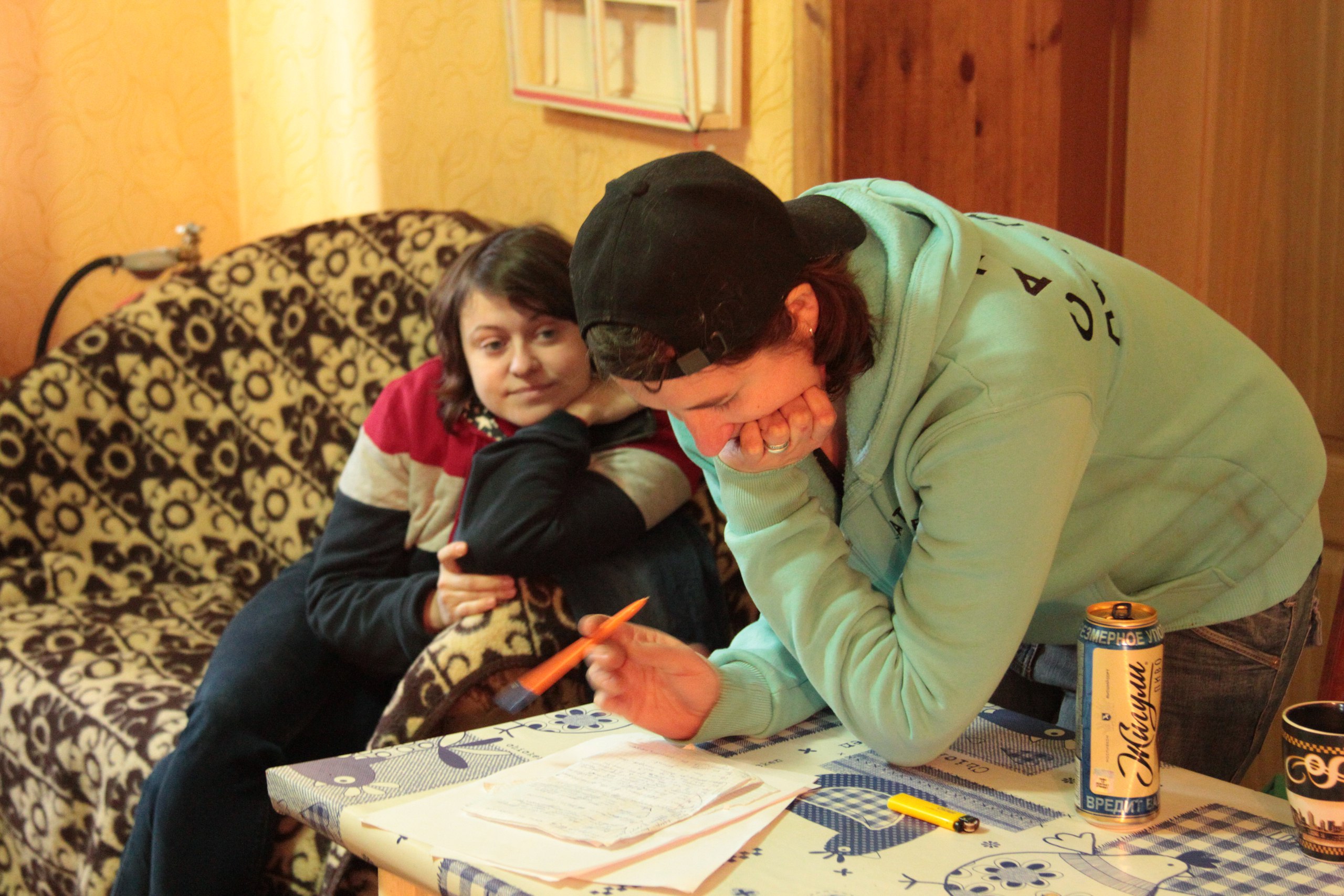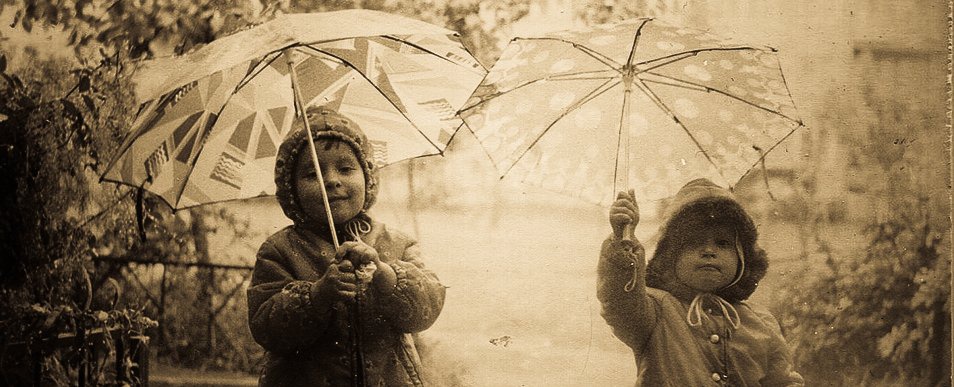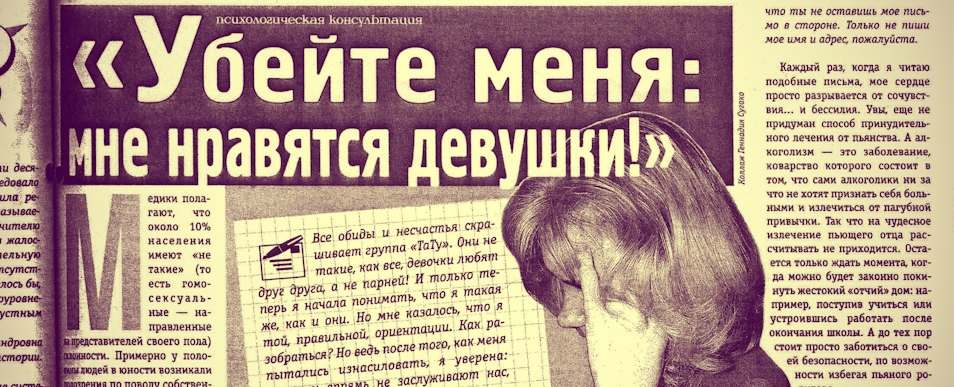At the L Party, apart from dancing and having drinking one could watch a movie and listen to live music. The L Party organiser tells us why she decided to quit LGBT activism. The interview was recorded in late 2013.
Kacia Pytlieva: Actually, I cannot be called an LGBT activist any longer. An activist is someone who does something. Of course, I have remained somewhat active in this sense: I bring up these topics in my work, I do interviews and initiate discussions. I try to present LGBT people in a good light. But certainly I’m not the activist I used to be, say, two years ago. I don’t throw events, don’t hand out leaflets, don’t run a website. In this sense I am, indeed, a former activist.
«My activism used to come in periods. There was a long five-year span that started in 1998, after which I nearly dropped out of the movement for several years. I’d meet people, throw parties, but that was it. I returned to activism in 2009, when the Labrys initiative group emerged. As I was leaving it was in its fourth or fifth year of running. This means that I was active inf the movement for about five years, ten in total.
».
— Why did you decide to quit?
— I realised that people were not ready for this. Probably even the LGBT community itself hasn’t yet matured. Yes, there are individual people who are active, they try to develop something, run events, but the further the worse. I continue to follow what is happening and I can see that it has all nearly died in the past two years since my organisation has stopped existing.
— There’s a gay pride once a year…
— Yes, there’s only Siarhiej [Androsienka. — Ed.] who does something. I have always admired Sasha Palujan: despite everything he still stands his ground. But when I was deciding to quit, I realised that people didn’t need this. Our people are ready to hang out but not to go out and fight for their rights. They are not even ready to work at the level of their own environment and to change their lives. Why bother then?
Yes, I could run educational events, arrange trainings, which we actually did, travel around the country. We did all this, but as experience has shown, people deem it better to live their own private lives. As for activities, this would probably be only limited to hanging out at a party, or covering up for each other and so on.
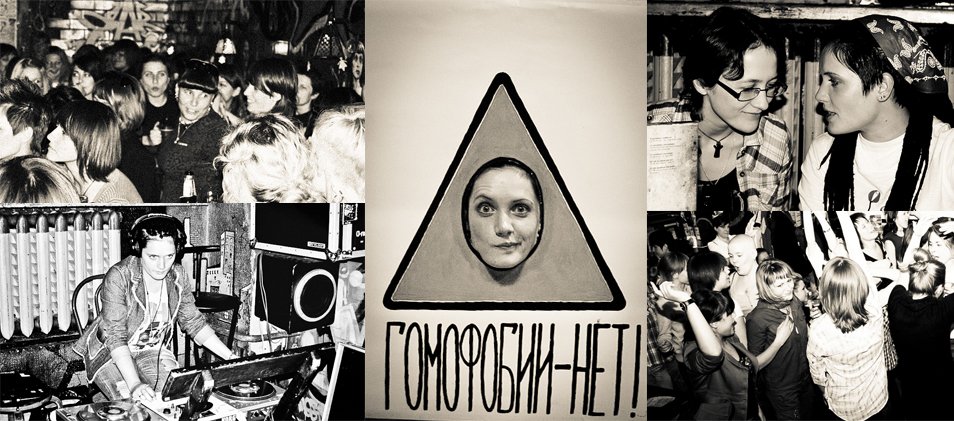
— On the other hand, what you did was really in demand. Lots of people would always come for the L Party at the Graffiti club.
— That’s the thing
 Our LGBT community is ready to be consumers but not so much to take immediate action. There are many who’d want to go hang out and look around.
Our LGBT community is ready to be consumers but not so much to take immediate action. There are many who’d want to go hang out and look around.People still write to me asking to bring the girls party [the L Party. — Ed.] back, which had been our initiative group’s starting point. But I’m not interested in running entertainment events as such. I wanted for this to lead to something bigger, specific actions, organisations, maybe changes in legislation. I wanted to consolidate the community at least in some way. And yes, people would come for a while, but disappear later. In the end it was a group of five to ten people who were really active.
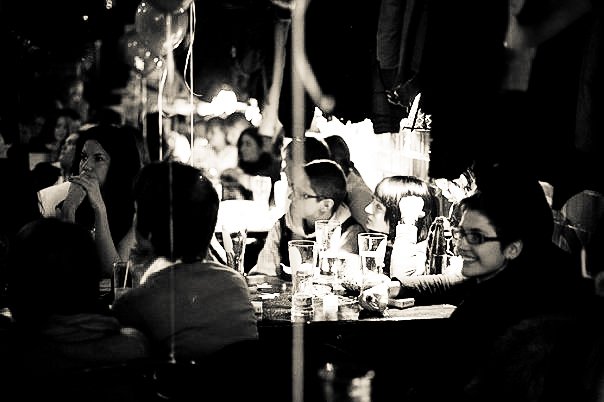
Also, I’ve grown weary of all the endless silly scheming and quarrels among the activists. Sometimes it was very hard to find a common language, although it would seem that should’ve been the starting point, everyone should support each other. That surprised me. It’s not a part of my life at the moment. I’m happy, I’m married, in a heterosexual marriage. Back then I did all that for people who were close to me, and I know myself what it is. I wanted to change something, help them somehow, but if people don’t need it, then why bother?
— Why is it like that? Is the reason maybe that in Belarus, the LGBT community’s primary need is basic socialisation, how and where to meet and so on?
— But you don’t need an organisation for that. Now there is the Internet, plenty of communities, it’s easy to find one another, but it is harder to create something. Like in other countries, nothing is happening here because people live for today. For example, if they start a relationship or find someone casual, they’ll date and hide from everyone or only tell their relatives but they don’t think about the future. Those who do think about it either leave the country or solve their problems privately on their own.
— That is to say you’ve just got disappointed, is that right?
— Yes. Although I wouldn’t exactly call it disappointment. I just realised that at this point it’s casting pearls…
— Pointless?
— Of course, there were some results.
 We helped people, pulled them out of difficult situations. Once we stood up for a girl at her university when she was nearly expelled. We helped couples, worked with transgender people. And look how many strong couples have formed!
We helped people, pulled them out of difficult situations. Once we stood up for a girl at her university when she was nearly expelled. We helped couples, worked with transgender people. And look how many strong couples have formed! Different girls would come to the L Party: lesbians, bisexuals, and those who were just interested, say, trying to find themselves. It was a very diverse crowd. Most people would get along. There are a lot of good stories, it wasn’t all in vain. I know that. Many girls were able to accept their homosexuality. I belive the main positive outcome was that people found their crowd, their place in life and like-minded people. I know there is still an L Party community. People come together and socialise. That’s already something.
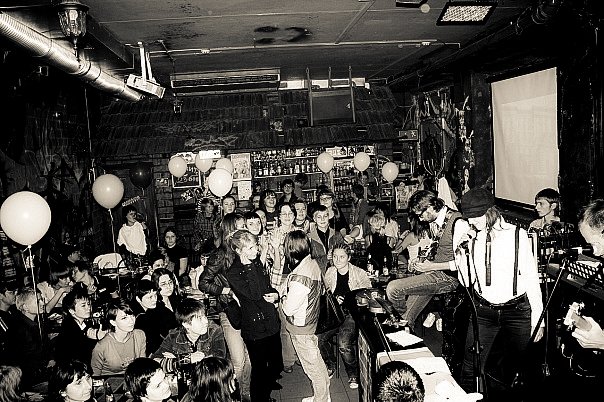
«The L Parties were largely educational. We had live music with female vocals. We ran creative competitions, photo contests. For every party I would prepare videos on LGBT history, on creative people, on the most interesting personalities. Every party had its informational component. Almost all of it is now available online for anyone to watch. We also arranged free movie marathons, where we would screen LGBT themed films. »
— What has happened to the people who went to your events? According to their numbers, one could tell that there was a demand for such meetings. If the demand is still there what has it transformed into?
— There are parties run by other people. But I have no idea, really. The girls tell me that they need more but it seems no one is doing anything about it.
— If we speak of the start of LGBT activism in Belarus, can we say it was 1998? Or had there been something before?
— When I joined in 1998 there was already Lambda [Belarusian League for Sexual Minorities Freedom “Lambda”, a non-governmental organisation.]. The Swedes would come, I remember there were workshops, a festival running for a few days. There was already something. There was an organisation called She, I was part of it and we tried to publish a magazine in 1998-1999. One issue did come out, but then Svieta [Plaūsiuk. — Ed.] quit the movement, and She ceased to exist. It was a registered organisation with a charter and everything. We tried to revive it and girls came together even before Labrys, but we were unable to reanimate She. So we decided to make something new.
— There was Edward Tarletsky and Lambda, then there was the She group, then you created Labrys, in the new generation there is Siarhiej Androsienka with his Gay Belarus. There are other names too, so there actually is a history of LGBT movement in Belarus. What do you think, is there continuity within the Belarusian LGBT movement or do initiatives emerge independently of each other, like individual lightnings, and then disappear into nowhere?
— It’s hard for me to say because I don’t see anything new. When I quit, I hoped that the girls would go on with what I had started. I thought some of them could continue. There were contacts established with nearly all of the regional centres, a website was made with symbols and logos which was operational and generated traffic, we had all that. But unfortunately, it all went under.
— What do you think needs to be done to change this?
— Our community needs to be educated. That’s the direction the movement should take. Our people are not used at all to fighting for their rights. If a regular person, despite all the things they are unhappy about, can’t go to a simple manifestation, what can we say about LGBT people who have the whole country against them! Very few are prepared stand up for themselves. In order for them to grow in numbers, people need to be educated, a special kind of consciousness needs to be instilled in them, they need to learn how these things happened in other countries, how the movement was formed, how people fought for their rights to be protected at the state level.











